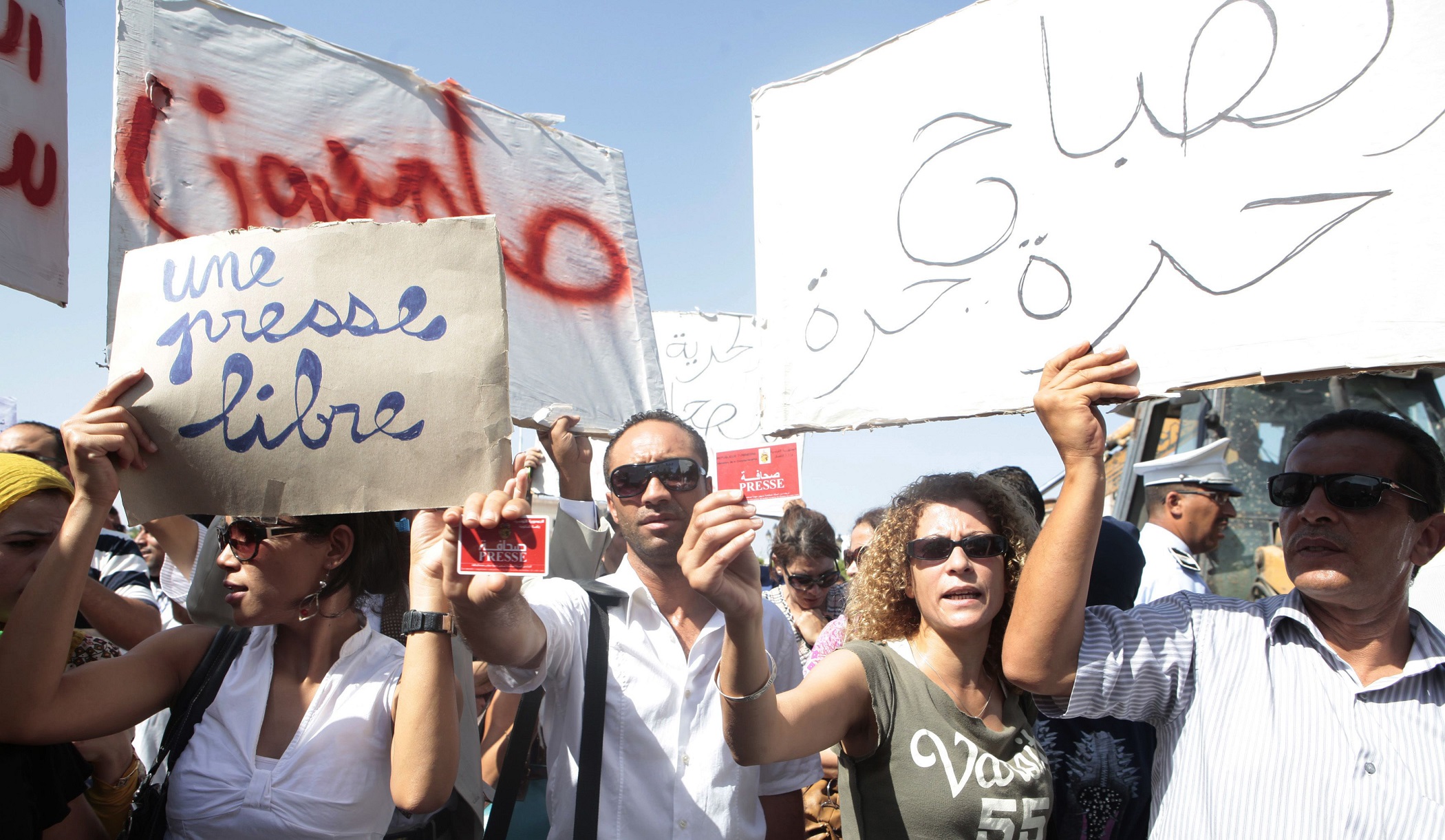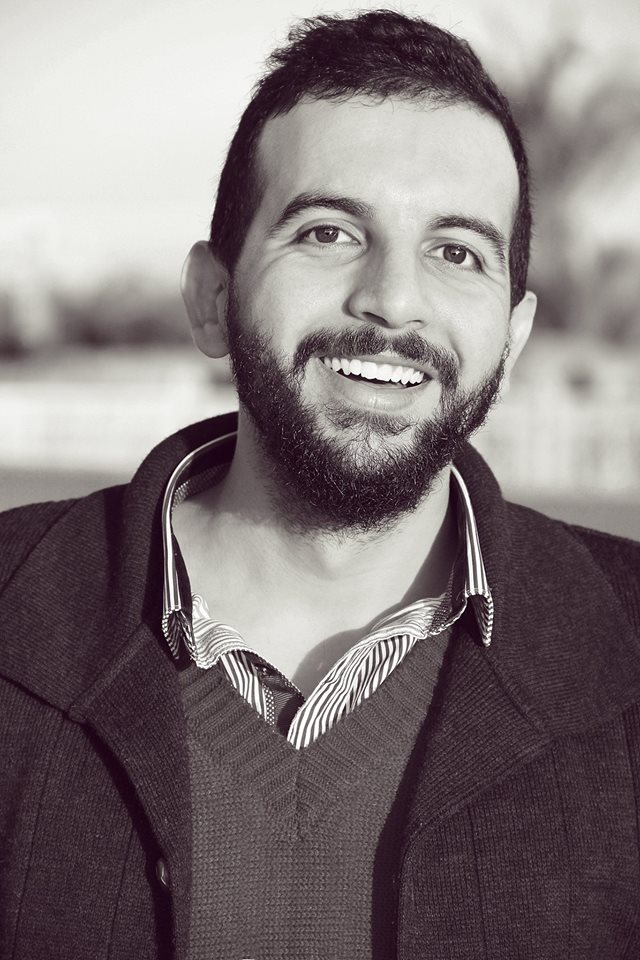Not so long ago, the idea of an “internet kill switch” seemed to be the stuff of fantasy, something impossible to implement in practice. But recent experiences of certain Arab countries—with several governments cutting off access to the internet in times of mass protest—have shown that it is in fact quite easy to “flip the switch.” In part, states do this to crush protesters’ determination and undermine their capacity to organise. But this is also part of a policy of imposing a media blackout intended to keep events under wraps, particularly in cases of political repression and human rights violations.
States eager to cover up their activities pursue policies ranging from blocking access to the internet entirely, to imposing strict censorship and surveillance. In the latter case, individual websites, blogs and social media networks that might convey the truth to international public opinion are blocked.
Sudan
This brings us to the “massacre” that took place in Sudan on June 3, 2019, when the Military Council violently dispersed protesters holding a sit-in at the Army Headquarters in central Khartoum. These events were followed by a total internet shutdown on the pretext of there being “threats to national security.”
Among the many voices to denounce the shutdown was the lawyer Abdelazim Hasan, who filed a suit against Zain, Sudan’s biggest internet service provider. In a bizarre twist, the Court ruled in Hasan’s favour as a sole litigant – meaning that while the general public was deprived of its right to access the internet, he alone was legally guaranteed full access as an individual.
In her opening speech before the UN Human Rights Council in Geneva, the High Commissioner for Human Rights, Michelle Bachelet, likewise called for the Military Government to end the internet shutdown. Human Rights Watch issued a similar statement, describing the shutdown as a flagrant human rights violation.
The World Bank’s website estimated that Sudan incurred financial losses of some 45 million dollars in a single day as a result of the internet shutdown. Other experts have put total losses at more than one billion dollars, in addition to the hindrance to humanitarian aid efforts.
The internet shutdown has also negatively affected journalism and the media. Publishing processes in Sudan are reliant on the internet, like the rest of the world, meaning outages create delays in publishing. Sudanese correspondents and columnists have been forced to deliver their pieces to editors in person as a result of the shutdown.
Uthman Mirghani, editor of the Sudanese newspaper Al Tayar, has described how the breakdown of communication between printers and newspapers has forced print outlets to use memory cards to print their papers. This has resulted in major delays to publication, meaning major financial losses for these outlets.
The Sudanese Journalists’ Network also published a statement condemning the Transitional Military Council’s (TMC) failure to end the internet shutdown, in addition to the firing of state TV director Jamal Mustafa and the refusal to allow journalists into state TV headquarters. The statement also warned of the eminent collapse of many media outlets due to publishers’ attempts to avoid or delay paying journalists.
Sudanese journalists thus continue to suffer in the digital sphere.
Egypt
Egypt, Sudan’s close neighbour, has a long history of restricting the press and free access to information. On 27 January 2011, the third “Day of Rage,” Hosni Mubarak’s government imposed an internet shutdown across the whole country. On the same day, Vodafone Egypt released a statement saying that it was obliged to follow Egyptian law, which grants the government the right to make such decisions. Other ISPs – Link Egypt, Telecom Egypt, Etisalat and Nour – followed Vodafone’s example. Nonetheless, more internet-savvy protesters were able to set up networks using dial-up modems and those landlines that were still operating.
During the shutdown – thanks to cooperation between Google and Twitter – Egyptians were also able to send tweets by phone by leaving a voicemail on numbers specially set up for the purpose. These messages were then processed automatically using speech-to-text software. Activists also used fax machines to send pictures.
This digital escalation continued in Egypt after the 2013 military coup. The government worked to impose numerous forms of censorship on virtual space, going to great lengths to acquire the necessary means to do so, in a flagrant violation of civil freedoms and network users’ right to privacy. After the Italian IT company, Hacking Time, was hacked in summer 2015, leaks revealed that the Egyptian security forces made a deal to purchase targeted surveillance software, used to collect personal data on particular individuals.
Since January 2016, access to the news website Alaraby Aljadeed has also been blocked, with knock-on effects for various other websites which use the same content delivery network.
In December 2016, Egyptians discovered that Signal, the encrypted messaging app, had also been blocked after systematic attacks on its security protocols (HTTPS and SSH). Implementation of the plan was overseen by TE-Data, owned by the ISPs Egypt Telecom, Vodafone and Nour, at the Egyptian government’s request. The same companies included spyware in their pop-up ads, allowing them to track browser activity via DPS functioning.
The scope of the policy has continued to expand, with 21 news websites blocked over the course of 2017 including Al Jazeera, Arabi Post and Mada Masr. A statement released by the pro-regime Asharq Al-Awsat media network on 24 May 2017 stated that only those news outlets that “support terrorism and publish falsehoods” were to be blocked.
Within a relatively short period of time, the number of blocked websites has risen to at least 62. Most are independent newspapers, opposition outlets or blogging platforms. The Turkish Daily Sabah, the American blogging website Medium and the opposition news website Elbadil have all been blocked.
Websites were blocked following raids conducted by the Egyptian police on the Cairo headquarters of several electronic newspapers, including Al Boursa and the English-language Daily News Egypt. The latter paper had its equipment confiscated on 2 May 2017, with several of its staff being questioned about their coverage of political events.
A broad campaign of arrests against journalists, civil activists and opposition bloggers followed, under such pretexts as “inciting violence,” “insulting the president,” “incitement against the government,” and “blasphemy.”
One prominent arrest was that of human rights lawyer Muhammad Ramadan, who in April 2017 was sentenced to ten years imprisonment, with five years of house arrest following his release – during which he would be totally banned from using the internet. Among the charges were accusations of having “insulted the President,” and having “used Facebook to engage in incitement against the government.” Many other digital activists met with the same fate as Muhammad Ramadan in 2017, including Omar Mustafa, Muhammad Rabeea Abdelaziz and Abdelaziz Mahmoud.
The situation is no better today. Egyptian President Abdelfateh al-Sisi has recently ratified a law making it a crime to access blocked websites, punishable with a prison sentence. In April 2019, the authorities banned the use of Bitly (a link shortening tool), thereby destroying some 37.5 billion websites hosted by this service. In an attempt to shut down the Badil campaign – set up to organise opposition to proposed constitutional amendments intended to keep Sisi in power for another fifteen years – ISP providers also blocked another 34,000 internet domains.
Other Arab countries
In pre-revolution Tunisia, deposed president Zine Abidine Ben Ali made numerous attempts to strengthen his grip on the media sector by appointing editors who would publish his regime’s propaganda and target its enemies.
Perhaps the most important figure in attempts to undermine the freedom of expression in Tunisia was Abdelwahab Abdallah, former advisor to the president. Abdallah was the architect of a 23-year program of “media disinformation,” and was referred to by media professionals as the “breaker of journalists.” In 2016, a group of media professionals and civil society activists signed a petition demanding that Abdallah’s practices and his role in suppressing the freedom of the press and keeping the media in line be made public.
The Ben Ali regime also pursued a policy of blocking numerous news websites through the Agence Tunisienne d’Internet. Activists and bloggers mocked this program of systematic censorship, referring derisively to the anonymous censor as “Ammar 404.” Websites targeted included alhiwar.net, launched officially on 11 April 2004 and blocked on the same day, and alarabiya.net, blocked in 2005. Also blocked was Tunis News, which was hacked on 5 September 2007 and its entire archive deleted – a step that infuriated defenders of freedom of opinion and expression.
The blogosphere also saw its fair share of blocking and hacking. Perhaps the most important victim of this was the former president Moncef Marzouki, whose personal website disappeared entirely from the internet along with its database – which contained dozens of articles, discussions and academic books.
In Mauritania, the internet was shut down for 48 hours after the elections of June 2019 that returned Mohamed Ould Ghazouani as president. The shutdown coincided with opposition protests alleging massive electoral fraud, and sought to prevent journalists, human rights defenders and opposition groups from communicating and exchanging information freely.
The phenomenon of internet shutdowns has also appeared in other Arab countries, whether through fully-fledged bans or partial limitations on access. This has happened in Syria, Algeria, Saudi Arabia, Bahrain, Morocco and Iraq.
Under such alarming conditions, many Arab journalists and bloggers find themselves obliged to self-censor on the internet, even in the absence of an active internet shutdown. They know that expressing themselves freely risks major repercussions. Regimes trick them into believing that there is a space for free expression with the ultimate aim of trapping them.
This was the experience of the Moroccan journalists Ali Anzola, chief editor of the newspaper Lakome, and Hamid El Mahdaoui, director of the website Badil, who were both imprisoned for posts they made online.
*Picture: Journalists protest against a government appointed director for a media group, in front of the prime minister's office in Tunis, September 28, 2012. (Zoubeir Souissi-Reuters).








































